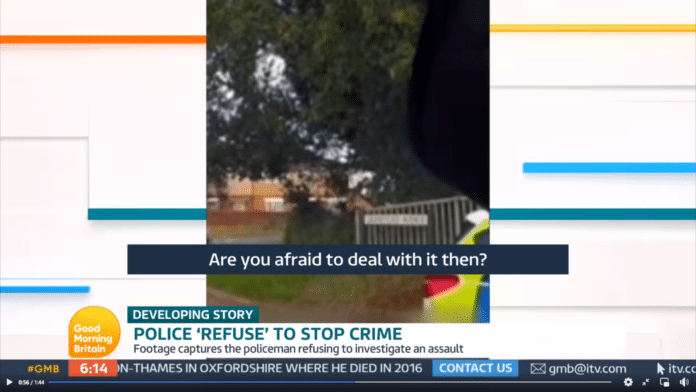Sometimes irony catches my breath.
One minute a Tory minister chats sh** and cares nought that only those with serious brain damage believe her
and then this happens.
It’s all lies and most of us know it.
The Misleading Nature of Official Crime Figures in the UK
Official crime figures play a significant role in shaping public perception and guiding policy decisions. They are regarded as reliable indicators of crime rates and trends within a society. However, it is essential to critically examine the validity and accuracy of these figures.
By analysing various factors such as underreporting, inconsistencies in recording practices, and the influence of political and social factors, we can uncover the limitations and potential biases present in these figures.
Underreporting of Crime
One of the primary reasons why official crime figures are misleading is the significant issue of underreporting. Many crimes, especially those of a non-violent or victimless nature, go unreported to the police. Victims may fear reprisals, lack confidence in the criminal justice system, or simply perceive the crime as too trivial to report. This creates a substantial gap between the actual number of crimes occurring and the figures presented in official statistics. For instance, research suggests that crimes such as shoplifting, minor thefts, and certain types of fraud are vastly underreported, leading to a distorted picture of the true crime rates.
Inconsistencies in Recording Practices
The reliability of official crime figures is further compromised by inconsistencies in recording practices. Different police forces may adopt varying methods of categorising and recording crimes, leading to discrepancies between regions. For example, one force may classify an incident as criminal damage, while another may record it as a public order offense. Such inconsistencies make it difficult to compare crime rates accurately across different areas and establish consistent trends.
Furthermore, changes in crime recording practices over time can also skew the figures. Modifications in the criteria used to classify crimes or the inclusion of new offenses can create artificial fluctuations in crime rates. For instance, the expansion of cybercrime or the recognition of certain offenses as hate crimes can result in an apparent increase in crime figures, even if the actual levels of criminal activity have not changed significantly. These inconsistencies make it challenging to make meaningful year-on-year comparisons or identify genuine shifts in crime patterns.
Political and Social Factors
Official crime figures can be influenced by political and social factors, further undermining their reliability. Governments and policymakers have a vested interest in presenting crime statistics that show a positive trend, as it enhances public confidence in their ability to maintain law and order. Consequently, there may be pressures to downplay or manipulate crime figures to create an illusion of success in crime reduction strategies. This can be achieved through changes in the way crimes are recorded, reclassifying offenses, or simply exerting political influence over the reporting process.
Moreover, the social climate and public perception of crime can also impact the reporting and recording of offenses. High-profile cases or media coverage of certain crimes may result in increased reporting, whereas public apathy or normalization of certain offenses may lead to underreporting. These social factors can create biases in the official figures, skewing them in favor of crimes that receive more attention or public concern.
Official crime figures in the United Kingdom are undoubtedly crucial in understanding crime trends and developing effective policies. However, it is essential to recognise their limitations and acknowledge the factors that contribute to their misleading nature. Underreporting, inconsistencies in recording practices, and political and social influences all play a significant role in distorting the true extent of criminal activity in the country.
To address these issues, efforts should be made to encourage greater public trust in the criminal justice system, ensure consistent crime recording practices across police forces, and minimise political interference in reporting processes.
Penny Lane
Join us in helping to bring reality and decency back by SUBSCRIBING to our Youtube channel: https://www.youtube.com/channel/UCQ1Ll1ylCg8U19AhNl-NoTg and SUPPORTING US where you can: Award Winning Independent Citizen Media Needs Your Help. PLEASE SUPPORT US FOR JUST £2 A MONTH https://dorseteye.com/donate/







